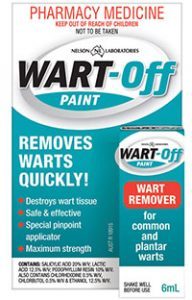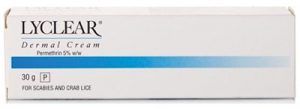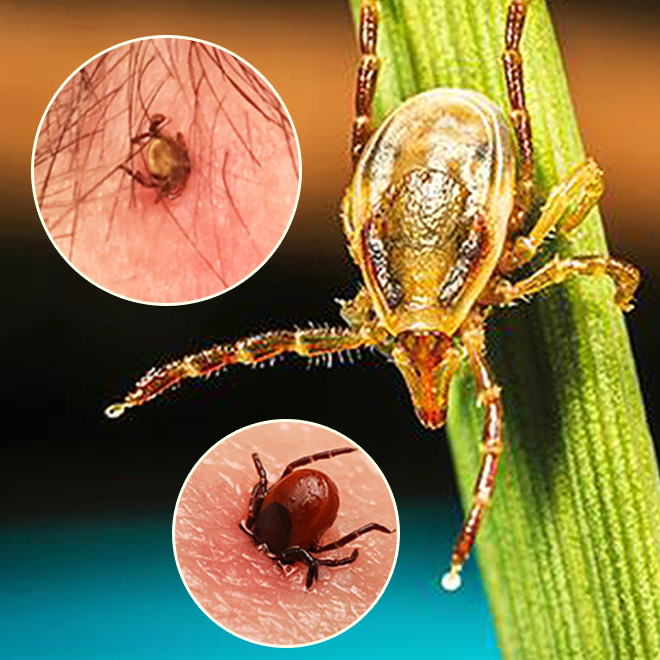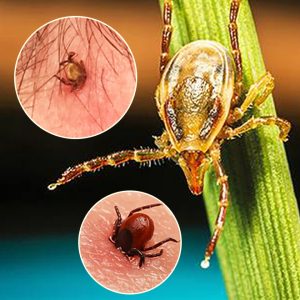Freeze it, don’t squeeze it!
The number one rule is do not do anything to squeeze, scratch or irritate the tick. Any of these greatly increases the risk of squeezing toxins from the tick into your bloodstream. Don’t reach for the nearest pair of household tweezers, pull at it with your fingers or start dabbing it with tea tree oil, methylated spirits, nail polish remover or any other home remedy.
Removing a live tick
For small ticks (read more about nymph ticks here) up to 2-3mm, use Lyclear cream which is available without a script from any pharmacy. It is used for scabies, which is a type of mite, and kills the tick while its still attached. Apply a pea sized blob of Lyclear onto the tick without rubbing it then leave it alone.


If the tick is larger you will need another pharmacy product called Wart Off. It is a spray that freezes the tick to death instantly. Very importantly you must apply five squirts (not just one or two) as close as possible to the tick which will kill it on the spot. This is advice from Australia’s peak body for tick allergy research, TiARA, at RNSH, and we endorse it 100%.
Removing a dead tick
Associate Professor Sheryl van Nunen is Australia’s leading authority on tick borne allergies (and famously discovered the link between tick bites and red meat allergy). Her advice on removing a dead tick from the skin (when it’s attached and you don’t want to wait for it to fall out naturally) is to be patient and wait, and that squeezing a dead tick is just as dangerous as squeezing a live one. However, if waiting is intolerable you can use very fine, needle nosed tweezers like a jewellers, but it requires an expert hand.
Household or eyebrow tweezers are unsuitable as they are not fine enough and will squeeze the tick’s body which you simply must not allow. Make sure you only grip the mouth part of the tick and never the body. Use extreme caution and seek medical attention from someone who is properly up to date on the recommended techniques – some doctors may not be.
Also make sure you note the date of any tick bite in a diary and then remain alert to any unusual symptoms over the next few weeks and seek immediate medical attention if any symptoms develop.
For more useful information, visit www.ticksafe.com.au
TickSafe & The Mozzie Team



